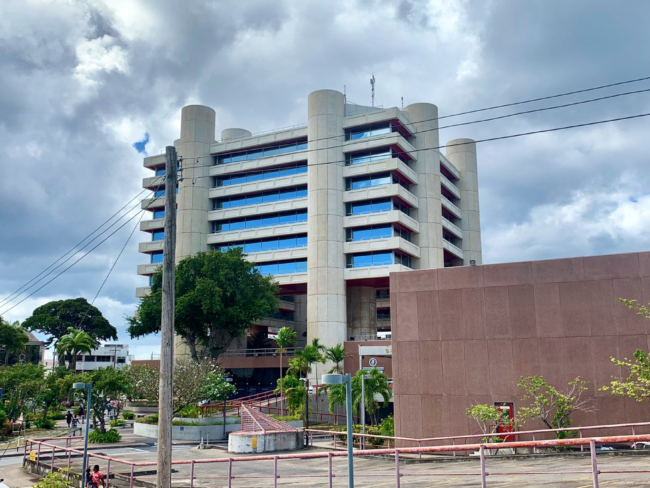Relief from high food prices is not immediately in sight but Central Bank Governor Dr Kevin Greenidge says the country’s inflation rate is headed in the right direction.
He offered no guarantee for a reduction in the prevailing high cost of living, despite reporting economic growth of 4.4 per cent for the first nine months of 2023 and strong economic indicators which he said was evidence that the island was on a sustainable growth path.
Pressed by journalists at Friday’s press conference to offer Barbadians some comfort on when to expect lower prices, Dr Greenidge pointed out the country was on course to returning to its historic inflation rate between 3 and 3.5 per cent.
He was, however, at pains to explain that prices remain relatively high because Barbados is a small economy and it imports the majority of its goods.
“In our best of times, because we import most of what we want from the USA, UK, Canada and we have a fixed exchange rate, we would tend to have the same inflation rate as those countries. It is impossible to have a low inflation rate and sustain it… when you are taking the goods from there [overseas markets].
“In my view, as the economy gets bigger and starts to settle at a constant growth rate, you will see inflation taper down to 3 or 3.5 per cent,” he explained.
The economist acknowledged that prices hardly ever decline, particularly in small countries, but he stressed that the focus must be on preventing continual price hikes.
“What we want to look at and control is the rate of increase in those prices, which is inflation,” Greenidge said.
According to the Central Bank’s report card, the point-to-point inflation rate slowed to 4.3 per cent in July 2023, from 6.4 per cent last year.
“Lower oil prices over the first nine months of the year eased imported inflationary pressures despite the recent uptick in global energy prices, which resulted in a 1.7 per cent increase in average crude oil prices in September. Freighting and distribution expenses benefitted from relatively lower average energy costs and the resolution of supply chain challenges from the pandemic era,” the report said.

The Central Bank also highlighted that domestic factors continued to weigh on the inflation rate. It noted that despite higher overall agricultural production, shortages of tomatoes, cabbages, sweet peppers, carrots, and sweet potatoes throughout the first half of the year drove up the price of local vegetables while international shortages of vegetable oils, seeds, and other grains due to the collapse of the Black Sea Grain Initiative combined with higher local prices for meats and fish, exerted upward pressure on inflation.
Rising demand for dining, recreational and cultural activities, and general economic growth also contributed to keeping inflation elevated.
Greenidge also told journalists that inflation was in part driven by pent-up demand coming out of the COVID-19 pandemic, but this was expected because of the expansion of the economy.
“We are getting the pent-up demand which is growing the economy because persons are getting out and enjoying themselves, starting a business and dining out, etc that is going to give you some price increases, but you are also on the other side getting the growth to compensate for it. What you don’t want is for it to run out of pace.”
He advised that once the country can achieve food security by growing more of its own foods and partnering with Caribbean neighbours in this area, then it would benefit from ease from sharp increases in commodity prices.
“The other thing is that the more we as a country become less reliant on fuel, the more we are going to find that we are able to settle at lower inflation rates, by then you would be kind of insulating yourself from price increases,” Dr Greenidge added.
The Central Bank report forecasts inflation to moderate in the medium term, in line with recent international commodity price declines.
“Domestic inflation should fall to five percent or below by the end of the year given price declines in cereals, vegetable oils and dairy products,” the report stated.
It however cautions that the contribution of crude oil prices to the slowing inflation rate for the remainder of the calendar year may not be maintained due to global oil production cuts by members of the OPEC+ grouping.
(BT)




